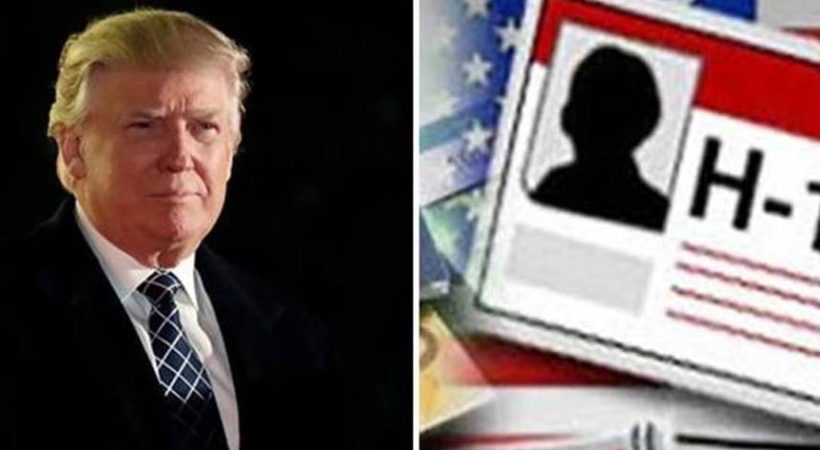H-1B visa holders in US may have to regularly provide biometric data

According to the proposal put forward by the US Department of Homeland Security (DHS) the foreign nations in the US including H-1B workers and their dependents (spouses and children) may need to routinely provide bio metric collections until they become US citizens, the Times of India reports. The proposed amendments by DHS, could require submission of bio metric data from US citizens, who are sponsoring relatives for immigration, the report said.
Currently, the bio metric collection is restricted largely to fingerprints and photographs from immigration applications and is used for background checks.
However, the new draft guidelines propose biometrics collection which include palm prints, iris images, voice recognition and in certain circumstances – DNA. Such bio metrics will also be collected from minors, as there will be no age restrictions.
The drafted rule would permit bio metrics collection for identity verification in addition to new techniques. Voice, iris and facial recognition technologies are fast, accurate ways to confirm the identity of an applicant that don’t require physical contact, states DHS in a press release as reported by the Times of India. It expects that the new rule would improve the screening and vetting process and reduce dependence on paper documents and biographic information to prove identity and familial relationships.
DHS will also be authorized to collect DNA or DNA test results to verify a claimed genetic relationship when the applicant is unable to provide sufficient documentary evidence to establish the claimed relationship.
“This proposed rule eliminates any ambiguity surrounding the Department’s use of bio metrics, setting clear standards for how and why we collect and use this information,” reports the Times of India quoting Ken Cuccinelli. “Leveraging readily available technology to verify the identity of an individual we are screening is responsible governing. The collection of bio metric information also guards against identity theft and thwarts fraudsters who are not who they claim to be,” he added.
The new regulation will be formally proposed on September 11, via publication in the Federal Register and will be open for public feedback for 30 days. This will follow vetting of the comments received and it will take several months for the rule to become final.
“The Trump administration is, once again, trying to radically change America’s immigration system. This time, they’re contemplating a new requirement to collect unprecedented personal information from immigrants and the US citizens who sponsor them throughout the immigration process and to potentially store that information even after the immigrants become citizens. Collecting a massive database of genetic blueprints won’t make us safer — it will simply make it easier for the government to surveil and target our communities and to bring us closer to a dystopian nightmare.”Andrea Flores, deputy director of immigration policy at the American Civil Liberties Union (UCLU), in a statement said,
“Trump’s goal is clear: to shut down the legal immigration system and make immigration as difficult as possible. Will Congress let him?” she added.















